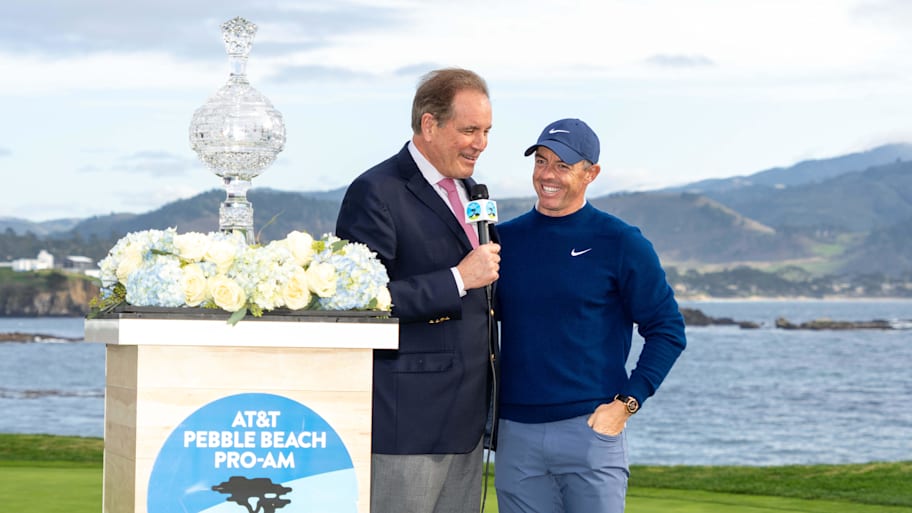Standing on the tee box and putting on a headset have parallels for Trevor Immelman.
“I have the exact same feeling going on air for CBS as what I did on the first tee getting ready to play a competitive round of golf,” Immelman, CBS’s lead golf analyst and the 2008 Masters champion, said in a conference call Wednesday in advance of next week's PGA Championship. “It’s the same concoction of nervousness, anxiety, excitement.”
If Immelman played poorly during his career, he was the one who was most negatively impacted. Now, though, he and the CBS Sports golf crew are responsible for telling the story of some of golf’s greatest moments for millions of people.
Since joining Jim Nantz in CBS’s broadcast booth in 2023, Immelman’s biggest call was likely this past Masters, when Rory McIlroy became the sixth player ever to complete the career Grand Slam—and nearly 20 million people in the U.S. watched.
But Immelman strives to excel in the spotlight, just as he did during his playing career.
“Those moments just allows you to realize how much you love what you’re doing and how much fun it is,” the 45-year-old South African said. So it’s something I really do get a kick out of. To have this opportunity to get those same emotions running through my body.”
However, he isn’t the only one.
On-course reporter Dottie Pepper, who won 17 times on the LPGA, including two majors, echoed Immelman’s sentiment.
“You do get nervous,” the 59-year-old said. “But to me, that emotion, that feeling is because it matters. And how do you deal with that? You prepare. And I think this team prepares better than anybody. They’re professionals from top to bottom behind the screen, in front of the camera, behind the camera. And we all know everybody has poured every bit of energy and expertise into what we do.”
"The long journey is over! McIlroy has his masterpiece." pic.twitter.com/X8LyQrJQr7
— Golf on CBS ⛳ (@GolfonCBS) April 13, 2025
Added Immelman: “Dottie has hit the nail on the head. Preparation is key. In that standpoint, you rely on your preparation and you rely on your teammates. You rely on their expertise.
“And [CBS Sports lead golf producer] Sellers [Shy] is on top of that in particular because he’s steering our ship. But what I always try and fall back on is No. 1, you have to be authentic, and No. 2, you need to just let your love of the game and the love of the championship and the tournament shine through. And I think when you do that, people at home find a commonality, a thread there that they can grab on to as they are enjoying the experience and enjoying watching some of the greatest athletes on the planet go at it.”
Then there’s Jim Nantz. In addition to being the lead play-by-play voice for 40 Masters, the 65-year-old has called seven Super Bowls, 32 NCAA Final Fours and 35 PGA Championships, plus an abundance of other NFL games and PGA Tour events.
The tension doesn’t elude him either.
“Are there nerves? Yeah, for sure,” Nantz said. “Is there emotion? Yes. Is it O.K. to have those emotions? I don’t know.
“Sometimes I get slammed for being emotional. Being too syrupy or whatever. All I can say is, I can’t apologize for it. That’s who I am. That’s what I feel. I get caught up in all of this. As Dottie said so beautifully, it matters. And I’m so engrossed in the competition that I just feel it as a fan, the nervousness of what could happen, what could go right, what could go wrong.
“It does mean something. And I cannot hold back those feelings. It’s just the way I am.”
And that’s what makes them great, whether it’s on the course or in the broadcast booth.
“That last answer by Trevor, ladies and gentlemen,” Nantz said, “is why he’s the best there is in the 18th tower. … For him to say that he feels the same level of nervousness and excitement that he felt on the first tee means he is the right guy for this job.”
This article was originally published on www.si.com as Jim Nantz, CBS Golf Broadcasters Reveal How They Navigate, Benefit From Nerves.
